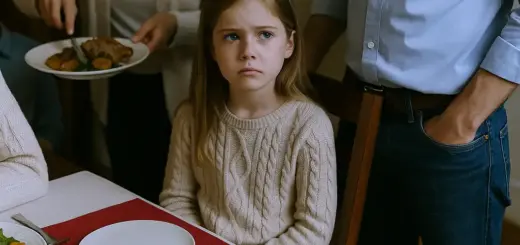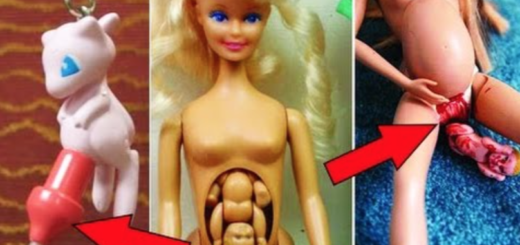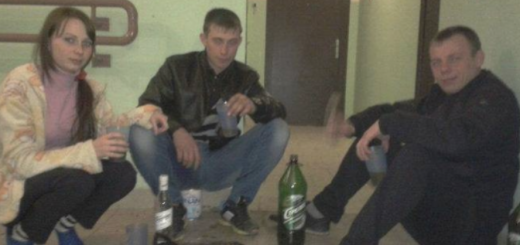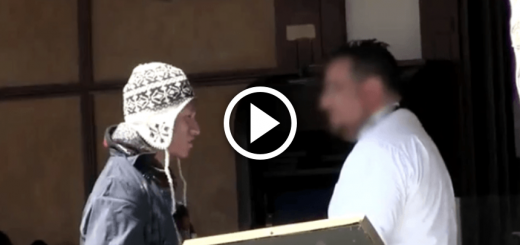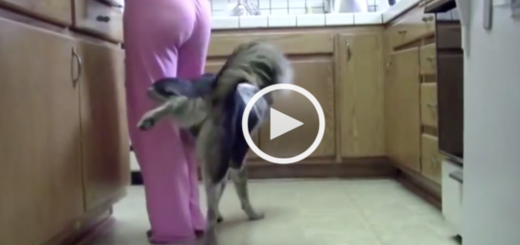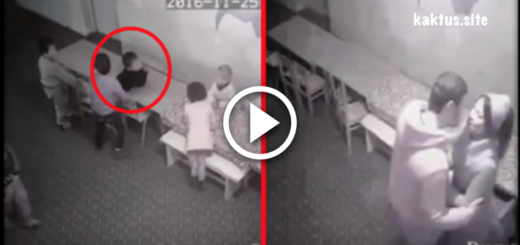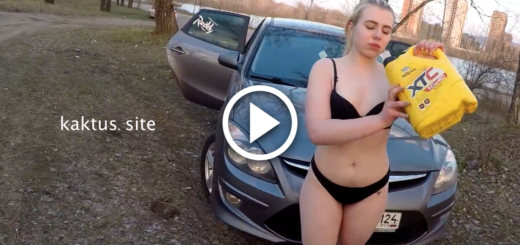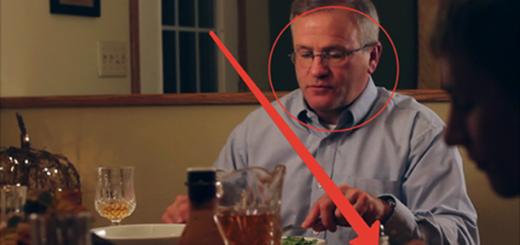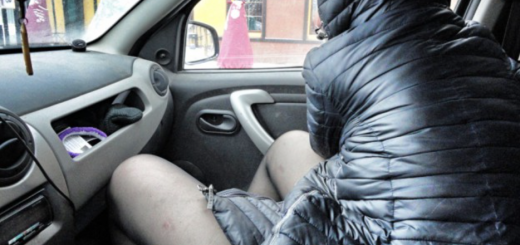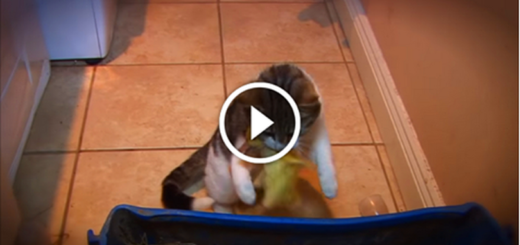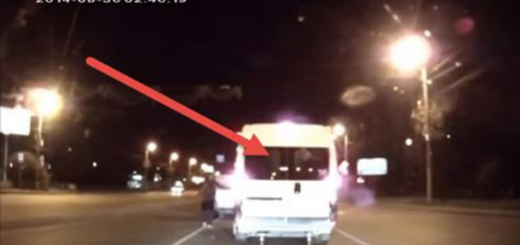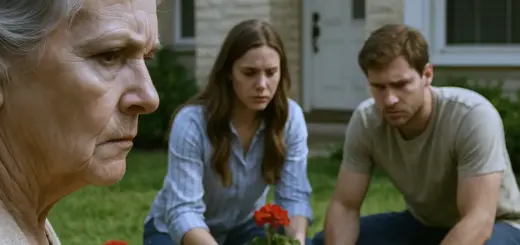The next few weeks passed in a strange haze. On the surface, everything looked normal. Brandon went to work, Tyler went to school, and I went to the library. We had dinner together most nights and watched TV as a family on weekends.
But underneath, something had shifted. I found myself paying attention to things I’d never noticed before: the way Brandon sometimes seemed distracted during conversations, how he’d started taking his phone with him everywhere, even to the bathroom. The fact that he’d changed his passcode and angled the screen away from me when he used it. Small things, things that could have innocent explanations, but they added up.
I also started noticing things about my mother. How she always seemed to know details about Brandon’s work that I hadn’t shared with her. How she’d ask about him first whenever I called, before asking about Tyler or me. «How’s Brandon handling that big construction project?» she’d ask, but I hadn’t told her about any big construction project.
When I mentioned it to Brandon, he just shrugged. «Probably heard it around town. You know how people talk in Riverside.» That was true. Riverside was the kind of small town where everyone knew everyone else’s business, but it still felt strange.
Then came the day that changed everything. It was a Thursday in early November. Tyler had a half day at school because of teacher conferences, and I’d taken the afternoon off from the library to spend time with him.
«Can we visit Grandma Helen?» Tyler asked as we sat at the kitchen table sharing a grilled cheese sandwich. My mother had always insisted that Tyler call her «Grandma Helen» instead of just «Grandma.» She said it sounded more sophisticated. I thought it sounded cold, but I’d never argued about it.
«I don’t know, sweetie. We should call first to make sure she’s home.» But when I tried calling my mother’s house, the phone went straight to voicemail. Her cell phone did the same thing.
«Maybe she’s out shopping,» Tyler suggested. «We could drive by and see if her car is there.»
My mother lived about 20 minutes away in the house I’d grown up in: a small, tidy place with a garden she was proud of and neighbors she’d known for 30 years. «Alright,» I agreed. «But if she’s not home, we’ll just come back another day.»
The drive to my mother’s house was peaceful. Tyler chattered about school and his friends, and I half-listened while enjoying the fall scenery. The leaves were at their peak, painting the world in shades of gold and crimson. But when we turned onto my mother’s street, my blood turned cold.
Brandon’s truck was parked in my mother’s driveway. I pulled over across the street, my hands shaking on the steering wheel.
Tyler looked up from his handheld game, confused. «Why did we stop? Isn’t that Dad’s truck?»
«Yeah,» I managed to say. «It is.» My mind raced through possible explanations. Maybe Brandon was helping my mother with something around the house. Maybe her sink was leaking, or her roof needed repair. Maybe.
«Are we going in?» Tyler asked.
«In a minute,» I said. «I just want to figure out what’s going on first.» Something deep in my gut was screaming danger. Every instinct I had was telling me not to go up to that door, not to knock, not to announce our presence.
We walked quietly around to the back of the house. My mother’s kitchen window faced the backyard, and I knew from years of childhood experience that you could hear conversations inside pretty clearly from that spot. What I heard destroyed my world.
«She’s so broken, Helen. Always crying, always needy. I can’t take it anymore,» Brandon’s voice was tired, frustrated, like he was talking about a burden he’d been carrying too long.
«I told you not to marry her, didn’t I?» my mother’s voice was sharp with satisfaction. «Always said she was too weak for a man like you. Too damaged.»
I gripped the windowsill so hard my knuckles went white. My 11-year-old son, Tyler, gripped my hand so tight, as if he understood what was happening.
«The insurance money from her father’s death made it worth it for a while,» Brandon continued. «But now that’s almost gone. I’m done playing the caring husband to someone so pathetic.»
The world tilted. My father had died in a car accident three years ago, leaving me a substantial life insurance payout—money that Brandon and I had supposedly been saving for Tyler’s future, money that was supposed to be our safety net.
«What are you going to do about it?» my mother asked, and I could hear the excitement in her voice.
«I’m going to leave her. Take everything. She’s so weak and broken she won’t even fight me. She’ll just cry and accept it like she always does.»
They both laughed then. Actually laughed about my pain, my weakness, my trusting nature.
«When?» my mother asked.
«Soon. Maybe after the holidays. I don’t want to ruin Tyler’s Christmas. The kid doesn’t deserve that.»
«You’re too soft,» my mother said. «She’s been a disappointment since the day she was born. Weak, just like her father. At least he had the decency to die and leave her some money.»
That was when something inside me snapped. Not broke, snapped, like a rubber band stretched too far. My father had been a kind, gentle man who loved books and taught me that I was worthy of love. My mother had spent my entire childhood comparing me unfavorably to other children, telling me I wasn’t smart enough, pretty enough, or strong enough for anything good.
I’d believed her. I’d spent my whole adult life grateful that Brandon had chosen damaged, weak, pathetic me. But now I knew the truth. He hadn’t chosen me; he’d chosen my father’s money. And my mother hadn’t just been critical; she’d been actively working to destroy my self-worth so that when this moment came, I’d be too broken to fight back.
I walked back to the car on unsteady legs. Tyler looked up at me with concern. «Mom, are you okay? You look really pale.»
«I’m fine, sweetie,» I said, my voice surprisingly steady. «Change of plans. We’re going home.»
«But what about Dad’s truck? Shouldn’t we say hi?»
«Dad’s busy helping Grandma Helen with something. We’ll see him at home.»
As I drove away from my mother’s house, Tyler chattering in the backseat, my mind was already working. Planning. Calculating. They thought I was weak. They thought I would just cry and accept whatever they did to me. They were about to learn just how wrong they were.
That night, I did something I hadn’t done in years. I really looked at myself in the bathroom mirror. The woman staring back at me was 32 years old but looked older, tired. Her brown hair was pulled back in the same simple ponytail she’d worn for the last decade. No makeup, because Brandon always said he liked me natural. Clothes that were practical and modest, because anything else felt like asking for attention I didn’t deserve.
I looked exactly like what I was: a woman who had spent her entire adult life trying to be small, quiet, and grateful for whatever crumbs of love people threw her way. But behind my plain brown eyes, something new was burning, something that had been sleeping for too long.
Brandon came home around 11, same as always. He kissed my cheek, asked about my day, and told me about his busy schedule tomorrow. The perfect husband act.
That night, after Brandon fell asleep, I got up and went to our home office. We kept all our financial records in a filing cabinet there—records that Brandon handled completely because I was «too emotional» to deal with money matters. What I found was worse than I’d imagined.
The insurance money from my father’s death, $150,000 that was supposed to be Tyler’s college fund, was almost gone. $50,000 had been moved to an account I didn’t recognize. Another $30,000 had been withdrawn in cash over the past six months. The rest had been spent on things that made no sense: $20,000 for «home improvements» that had never happened, $15,000 for business equipment for Brandon’s construction company, and thousands more for expenses I couldn’t identify.
I sat in that office until dawn, going through every piece of paper, every statement, every receipt, building a picture of exactly how thoroughly I’d been betrayed. By the time the sun came up, I knew three things for certain. First, Brandon had been stealing from me systematically for months, probably planning his exit strategy. Second, my mother had been part of it from the beginning; phone records showed dozens of calls between them, often during times when Brandon had told me he was working. And third, they had severely underestimated me.
The next morning, I did something I hadn’t done in a very long time. I called in sick to work. Not because I was actually sick, but because I had things to do. Important things.
After Brandon left for work and Tyler left for school, I drove to the bank. Our bank, where I’d been a customer for 12 years. Where the tellers knew me by name.
«Good morning, Mrs. Miller,» said Janet, the head teller. «How can I help you today?»
«I need to speak with someone about my accounts,» I said. «All of them.»
What I learned in that meeting changed everything. The account I didn’t recognize, the one with $50,000 of my money in it, was a joint account belonging to Brandon and my mother. They’d opened it three months ago.
«This is definitely your signature on the authorization to move funds,» the bank manager, Mr. Thompson, explained. «But if you don’t remember signing this…»
«I remember now,» I lied smoothly. «I just wanted to check on the balance.» Mr. Thompson looked relieved. Banks hate family disputes, especially when large amounts of money are involved. But I wasn’t going to make this the bank’s problem. I was going to handle this myself.
My next stop was the library, but not to work. I needed to use the computers for research that couldn’t be traced back to my home computer. I spent hours learning about divorce law in our state, about asset division and child custody, and about what happens when one spouse can prove the other has been hiding money. But more importantly, I learned about a different kind of law: the kind that deals with fraud, embezzlement, and theft. Taking money from accounts without permission, even between spouses, was still theft if it could be proven that the money had been obtained through deception. And I could prove that.


